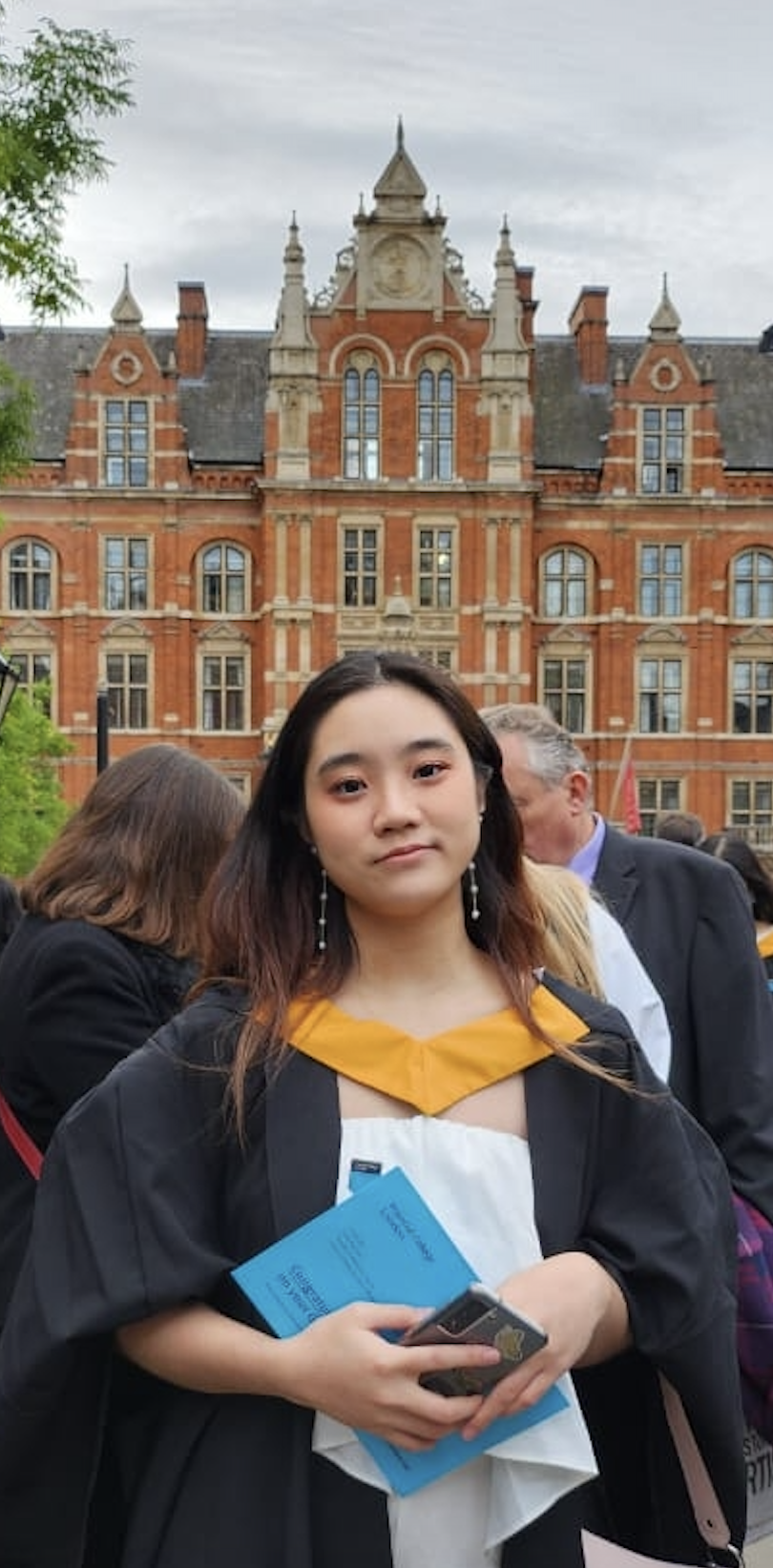
What is your name? Rou Ann Lim
Where are you from? Malaysia
To which class you belong to? MSc Translational Neuroscience, Class of 2024
Where and what did you study before joining Imperial College London? I studied BSc Medical Biosciences also at Imperial College London before pursuing my Master’s
How did you find your Master’s experience at the College? My Master’s experience was extremely rewarding. Despite some challenges, I appreciated the opportunity to push my limits, gain new skills, and learn valuable techniques. I found much support from my personal tutor, Professor Payam Barnaghi, my supervisors (Professor Adam Hampshire, Valentina Giunchiglia and Ziyuan Cai), the whole department and my peers. As a student representative, I also enjoyed supporting my peers and working with the department to improve the student experience. Overall, it was an academically stimulating, supportive and enriching experience
Which research project did you work on? My MSc thesis focused on modelling cognitive and motor impairments using British 1946 birth cohort data. The aims were to refine cognitive metrics obtained from the online cognitive test data using a computational model called the Iterative Decomposition of Cognitive Tasks (IDoCT) to enhance their precision and sensitivity. My analysis was on eleven different cognitive tests assessing various cognitive domains. The findings indicated that IDoCT metrics, particularly from memory-related tasks, emerged as robust predictors of brain biomarkers, including amyloid levels, brain volume, and brain boundary shift integral metrics. The machine learning analyses predicted motor function using the IDoCT metrics, employing decision trees and random forest algorithms for their superior performance. These models successfully forecasted the severity of right pronation-supination and kinetic tremor hand movements
Where are you now? I am currently based in London
What are you working on? I will soon start a clinical data scientist internship at Great Ormond Street Hospital. The aim is to design a graphical user interface for clinicians to access a large language model that predicts delays in cardiology treatment times. Additionally, I aim to pursue medicine in September 2025
What is the most important lesson you learned as a Master’s student? The most important lesson was learning to be independent, proactive, and resourceful. Self-improvement and acquiring new skills are essential, but knowing when to seek help from experts, such as professors, is equally crucial in shaping one’s learning experience
How did the Master’s programme help you get to where you are now? Before starting, I knew artificial intelligence (AI)/ data science was becoming crucial in healthcare, and the programme gave me the skills to leverage it effectively. I developed technical expertise in data analysis, machine learning, and coding and soft skills like problem-solving, teamwork, and leadership. These experiences have laid a strong foundation for my future as a clinician-scientist, particularly in neurosurgery, where AI can predict surgical outcomes and enhance precision. This foundation will allow me to apply AI to improve patient outcomes while carefully evaluating the associated benefits, risks and biases